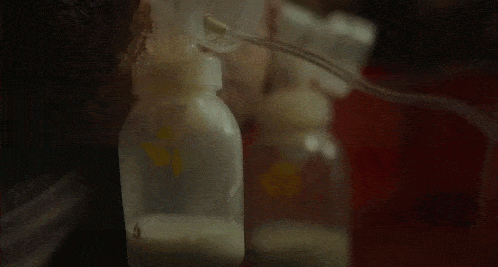As mums, we’ve all heard of the amazing benefits of exclusively breastfeeding our babies. The list ranges from building baby’s immunity, protection from diarrheal diseases to breastfeeding being relatively easier on the pocket compared to breastmilk substitutes.
Going back to your 9-5 job after childbirth.
Breastfeeding is challenging. If exclusive breastfeeding is your goal, the thought of keeping up with it and going back to your 9-5 job can seem daunting. It’s my hope that a few of these tips can help you navigate this.

Building a stash of milk
Start preparing now or at most two months before you are due to return from maternity leave.
Pump a little each day.
I advise you to store your milk in labeled bags or bottles with ice packs in a large plastic container in your freezer to protect it from power outages.
Find out how much milk your baby normally takes at each feeding. This, of course, will vary as your baby gets older.
For our demonstration, let’s say the baby drinks 50mls of milk with each feed. If you are going to be away for 8 hours every day and your baby eats every 2 hours that means your baby will feed 4 times while you are away. Add an extra 50mls (just in case there’s a spill). That means your baby will need 250mls of milk ((4x 50mls) +50mls).

So, to build up a stash that will last 5 workdays you’ll need (5x250mls). That comes to a total of 1250mls of milk.

Ensure your bags or bottles are labeled with the date and time pumped as well as the amount of milk in each bag or bottle. Make sure they are then sealed properly for storage.

How long can I store breastmilk for with the weather in Nigeria ?
In our environment, breast milk can last up to:
- 6 to 9 months in the chest freezer,
- 6 days in a fridge and
- 4 -6 hours out of the fridge at room temperature and
- 24 hours in a cooler with an icepack.
So if you pump milk at work and store it in a cooler bag with an ice pack you are good till you get home.
Please note…
Breast milk separates when stored with a layer of fat at the top. Once thawed gently swirl (don’t shake) the bag or bottle to mix.
What guidance do I give my baby’s carer about thawing breastmilk ?
Breastmilk is liquid gold.
It’s alive. It has infection-fighting cells, protective proteins as well as nutrients. Thawing it the wrong way can destroy all that good stuff. For milk from the freezer, bring it out the night before to thaw in the fridge. Alternatively, dip it in a bowl of tepid water. Please don’t microwave or put your milk in boiling or hot water. Breastmilk stored in bags thaws faster than milk in bottles.
It’s best to store your milk in serving-sized portions that your baby will finish at a go. Any bit of milk left can be stored in the fridge but must be consumed within 24 hours.
Can breastmilk turn sour?
I’ve had mums worry about being engorged by the end of a workday or after a trip out of town but reluctant to breastfeed their babies.
They were told by relatives that their breast milk would have gone sour by then. I’ve also been told of some babies who reject stored milk or mums who noticed that the taste of their milk changed compared to when it was first expressed.
The taste of your breast milk depends on several factors:
- Your diet
- The action of enzymes found in breastmilk
- Where you store it
- What you store beside it in the fridge or freezer.
Milk that is fed to your baby directly from your breast even after a break away from the baby is still good and cannot have “gone off”. Secondly just because the milk that has been stored properly tastes funny at a given point in time does not mean it’s gone off. The only issue is that some babies may reject breast milk at that time because of a change in taste.
Let’s break it down
One of the enzymes (lipoprotein lipase) in breast milk breaks down triglycerides into several fatty acids when it’s stored.
The levels of this enzyme in breast milk are higher right after you have had a meal, especially a high-fat one. These fatty acids can give your milk a soapy, musty, goaty, or metallic taste.
Further breakdown (by oxidation) can give your milk a metallic taste.
Some babies don’t care about this, some do.
5 Things you can do about this change in the taste of your breastmilk
- Freeze your milk once it’s expressed instead of putting it in the fridge.
- Thaw your frozen milk gradually in the fridge instead of in warm water.
- Some advocate scalding your milk at 82 degrees C before storage. This works but destroys protective antibodies in your milk.
- Adding antioxidants such as Vit E and C to your diet.
- Cutting down on polyunsaturated fats in your diet.
Exclusive breastfeeding is challenging. However, it can be an immensely fulfilling experience for mums who can pull through. There are situations where it is absolutely impossible to breastfeed or have a good supply, e.g. glandular hypoplasia. These challenges faced can potentially put a mum’s mental health at risk. In such cases be rest assured that as long as your baby is being fed enough (breast milk or formula) all will be well.
Your ability to breastfeed does not in any way reflect on your ability to be a good mother.
Tweet
References
Nichola Singletary. 2019. “Funny Tasting Milk: Biochemistry and Clinical Applications of Human Milk Oxidation”. Lecture delivered at 2019 Gold Lactation Online Conference

